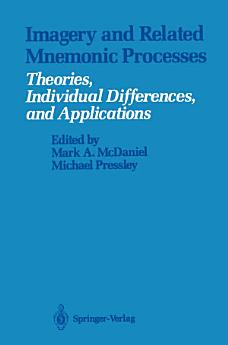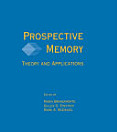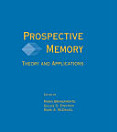Imagery and Related Mnemonic Processes: Theories, Individual Differences, and Applications
Mark A. McDaniel · Michael Pressley
Dec 2012 · Springer Science & Business Media
Ebook
470
Pages
reportRatings and reviews aren’t verified Learn More
About this ebook
Scientific work on mnemonics and imagery conducted in the 1960s and early 1970s was directed at testing enthusiastic claims of the efficacy of memory tech niques developed by the ancient Greeks and further refined in the popular litera ture by "professional" mnemonists. The early research on imagery and mnemonics confirmed many of these claims and also illuminated the limitations of some techniques (e. g. , bizarre imagery). As such, these seminal studies clearly were valuable in providing a solid data base and, perhaps as important, making imagery and mnemonics acceptable research areas for experimental psycholo gists and educators. After this initial surge of work, however, it seemed that sub sequent contributions met with the attitude that "mnemonic techniques and imagery help memory, what else is new?" This attitude was not completely justi fied, however, given the theoretical insights from the work of such imagery and mnemonics pioneers as Gorden Bower, Allan Paivio, and William Rohwer. In the 1980s this claim is completely unjustified. Research on mnemonics and imagery has grown in exciting ways. Researchers are tapping the area's theoretical potential, both in terms of extending basic memory theories to account for the robust effects produced by mnemonic techniques and in terms of using explanations of mnemonic effects to understand basic memory processes. Individual differences in the use of imagery and mnemonic encoding activities are also being explored. This research has provided valuable information for basic memory theories (e. g.
Rate this ebook
Tell us what you think.
Reading information
Smartphones and tablets
Install the Google Play Books app for Android and iPad/iPhone. It syncs automatically with your account and allows you to read online or offline wherever you are.
Laptops and computers
You can listen to audiobooks purchased on Google Play using your computer's web browser.
eReaders and other devices
To read on e-ink devices like Kobo eReaders, you'll need to download a file and transfer it to your device. Follow the detailed Help Center instructions to transfer the files to supported eReaders.







